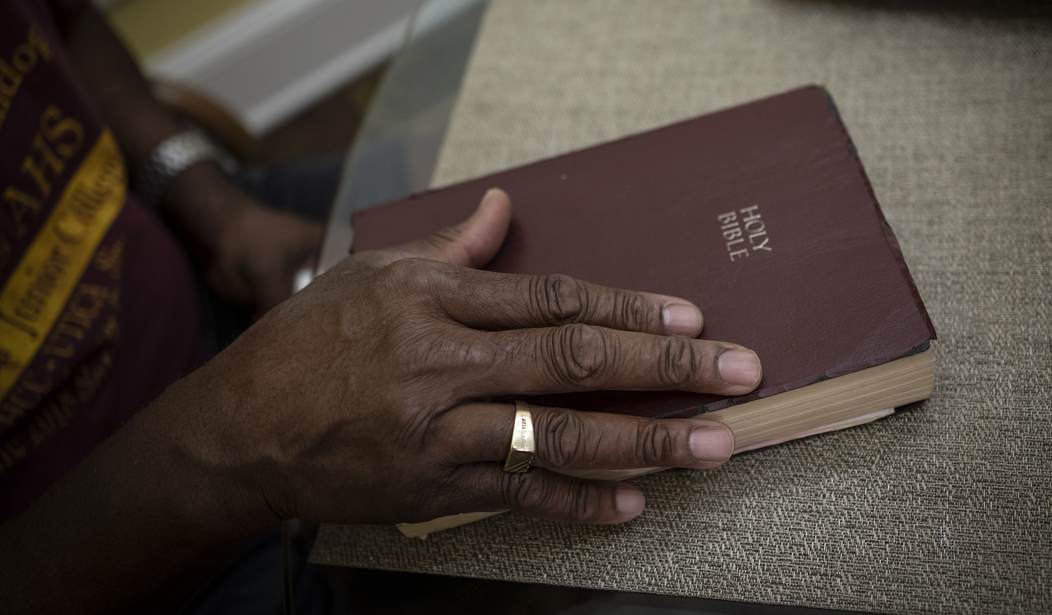Author’s Note: Interested readers can find all previous volumes of this series here. News Flash: The first 56 volumes are compiled into a book titled “Bible Study For Those Who Don’t Read The Bible.”
Thanks for joining us as we continue discussing topics relevant to the Advent Season culminating in the “advent” (arrival) of Yeshua — a Jewish infant with the anglicized name of Jesus. Last week we examined the conception and birth story of John the Baptist (Vol. 90), and today, we study Joseph, the earthly father of Jesus, who many believe is under-appreciated.
Since there are no direct Biblical quotes attributed to Joseph, we don’t know his personality, which helps explain why he is often overlooked. Primarily, Joseph is known as Mary’s husband and Jesus’s earthly father. However, he should always be commended and remembered for his obedience to God’s instructions via an “angel of the Lord” at four critical junctures in the life of Jesus.
In the New Testament, we first read Joseph’s name in the first chapter of Matthew — the NT’s first book named for its author — one of Jesus’s 12 apostles. According to my NIV Study Bible (and widely accepted) was that “Matthew’s main purpose is to prove to his Jewish readers that Jesus is their Messiah.”
To “prove” his case, Matthew begins his book detailing “The Genealogy of Jesus” —starting with “Abraham was the father of Issac….” (Matthew 1:2). Fourteen verses later, Matthew writes, “..and Jacob [not the patriarch Jacob] the father of Joseph the husband of Mary, of whom Jesus was born, who is called Christ ” (Matthew 1:16).
Recommended
That genealogy speaks volumes about who Joseph was and why he was chosen to be the earthly father of Jesus.
Descended from King David, Joseph was Jewish “royalty” — as was Jesus through Mary. However, Joseph was the only male in Matthew’s genealogy who did not “father” the next generation. Instead, Joseph is recorded as “the husband of Mary of whom Jesus was born...” In ancient times, men were never referred to as the “husband” of their wife, proving Joseph was unique and anointed for a greater mission.
And what was that mission? The Lord chose Joseph to protect Mary and Jesus. Let’s review the famous story:
“This is how the birth of Jesus the Messiah came about: His mother Mary was pledged to be married to Joseph, but before they came together, she was found to be pregnant through the Holy Spirit ” (Matthew 1:18).
Oy vey! Thought Joseph after learning that baffling news and contemplating his next move:
“Joseph was faithful to the law, and yet did not want to expose her [Mary] to public disgrace, he had in mind to divorce her quietly” (Matthew 1:19).
At that time, Jesus could not be raised in shame by a divorced, single mother and why Joseph’s plan triggered a Divine intervention:
“But after he had considered this [divorce], an angel of the Lord appeared to him in a dream and said, ‘Joseph son of David, do not be afraid to take Mary home as your wife, because what is conceived in her is from the Holy Spirit. She will give birth to a son, and you are to give him the name Jesus, because he will save his people from their sins ’ ” (Matthew 1: 20-21).
Note that during and after Joseph’s first dream, he does not respond but chooses to be obedient to the Lord’s commands:
“When Joseph woke up, he did what the angel of the Lord had commanded him and took Mary home as his wife. But he did not consummate their marriage until she gave birth to a son. And he gave him the name Jesus” (Matthew 1: 24-25).
We turn now to the gospel of Luke, where the Christmas story’s most familiar narrative is recorded. I paraphrase:
About the time Mary was nearing her due date, the Roman emperor issued a census decree for everyone to report to their hometown to be registered (assuming for taxation purposes.) That explains why Joseph and Mary went “to Bethlehem, the town of David because he belonged to the house and line of David” (Luke 2:1-4).
All that action converged to fulfill a Messianic prophecy recorded in the Hebrew Bible book of Micah written seven centuries earlier:
“But you, Bethlehem Ephrathah, though you are small among the clans of Judah, out of you will come for me one who will be ruler over Israel, whose origins are from of old, from ancient times” (Micah 5:2).
Although we never “hear” Joseph’s voice, his presence was integral to the prophesied birthplace and how he protected Baby Jesus against a life threat that warranted a second angelic Divine intervention. Again, Joseph had a dream:
“When they [the Magi] had gone, an angel of the Lord appeared to Joseph in a dream. ‘Get up,’ he said, ‘take the child and his mother and escape to Egypt. Stay there until I tell you, for Herod is going to search for the child to kill him.’ So he [Joseph] got up, took the child and his mother during the night, and left for Egypt, where he stayed until the death of Herod. And so was fulfilled what the Lord had said through the prophet: ‘Out of Egypt I called my son’ ” (Matthew 2:13-15).
The third time “an angel of the Lord” (Gabriel, we assume since his first assignment was Mary) came to Joseph in a dream was when it was time to leave Egypt after King Herod had died. The angel said:
“ ‘Get up, take the child and his mother and go to the land of Israel, for those who were trying to take the child’s life are dead.’ So he got up, took the child and his mother and went to the land of Israel” (Matthew 2:19-21).
Shortly after, Joseph was warned in dream number four that Herod’s son Archelaus was dangerous. Thus, Joseph “withdrew to the district of Galilee, and he went and lived in a town called Nazareth. So was fulfilled what was said through the prophets, that he would be called a Nazarene” (Matthew 2:22-23).
Interestingly, in the time of Jesus, Nazarene was a synonym for “despised.” And why in John’s gospel, when Philip was trying to recruit Nathanael to meet Jesus, Nathanael said, “ ‘Nazareth! Can anything good come from there?’ Nathanael asked. ‘Come and see,’ said Philip” (John 1:45-46).
Today, we learned that the Lord’s plan for Joseph was missions of vital importance. He was commanded to protect Mary and Baby Jesus while locating the Messiah exactly where He had to be when He had to be there.
St. Joseph, we appreciate you!
Myra Kahn Adams is a media producer and conservative political and religious writer with numerous national credits. Her new book, “Bible Study For Those Who Don’t Read The Bible,” reprints the first 56 volumes of this popular study. Myra is also Executive Director of SignFromGod.org, a ministry dedicated to Shroud of Turin education. Contact: MyraAdams01@gmail.com or Twitter @MyraKAdams.
























Join the conversation as a VIP Member